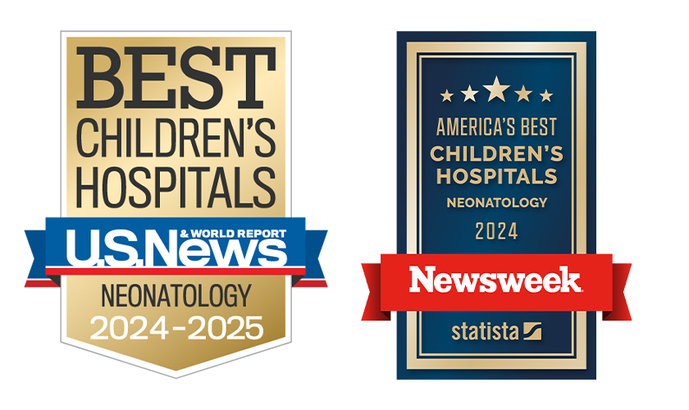Neonatology: Why Choose Us
An expert team
Our team is extensive. It includes doctors, nurses and therapists. They work together to help babies with health problems like birth defects, breathing issues, heart problems and other disorders. Each year, our team provides 24/7 care to more than 4,000 babies.
The number of patients and the variety of conditions we see daily give us experience, which is unmatched in the region. Many of the neonatal conditions we treat are very rare or extremely complex. While other physicians may encounter only a few such cases in their entire career, our team sees critically ill children with complex birth defects and other serious, sometimes life-threatening, conditions every day.
Services and spaces designed for you
We work hard to make families comfortable so your baby can heal and you feel at ease and empowered as their parent or caregiver. Everything, from our services to how our facilities are designed, is done with your and your baby's well-being in mind.
Here, your baby can get expert care in the Level IV Harriet and Ronald Lassin Newborn/Infant Intensive Care Unit (N/IICU) at our Philadelphia Campus, the Level III N/IICU at our King of Prussia Campus, and through our special programs. We also offer care at different locations throughout the CHOP Newborn Care Network. This can make accessing our expert care a little easier for your family.
We use advanced diagnostic tools. This helps our experienced doctors give your family the most accurate answers and the full range of treatment choices.
We offer every type of surgical option for newborns and infants. These include:
- Laparoscopic surgery. This is a minimally invasive surgery done through small incisions.
- Robotic surgery. This is another minimally invasive surgery in which robotic arms control small surgical instruments for greater precision and accuracy.
- Open surgery. This is a traditional approach to surgery that involves making a larger incision to expose the area being operated on. This gives surgeons a clear view of the organs and structures they are operating on.
History of innovation
In 1962, CHOP started the first surgical intensive care unit (ICU) for newborns and infants in the United States.
The Division of Neonatology at CHOP is known throughout the country for:
- Innovation. We have a history of developing new ideas and methods to improve care for babies.
- Optimal care. We are committed to providing the best possible care for newborns and infants.
- Training future generations. We teach and train doctors, nurses and other care providers to ensure that babies everywhere get the best care possible.

Recognized leader
CHOP's Neonatology and Newborn/Infant Intensive Care units are consistently ranked by U.S. News & World Report as among the best programs in the country. These rankings are based on factors like our clinical outcomes, the quality of our resources, the excellence of our patient care and our reputation among outside medical experts. We are also ranked among the best neonatology programs in the nation by Newsweek. Many families rely on these rankings to find the best place for their sick baby to receive care.
Family-focused care
Families are at the heart of everything we do. This means including all members of the healthcare team and your family in discussions related to your baby’s diagnosis, treatment plan and progress. Every baby’s N/IICU journey is unique.
We work with you to take a personalized approach to your baby's care guided by evidence-based knowledge our team has gained over many years of experience. We use specialized medical equipment and monitoring devices to understand your baby’s needs. If your baby needs to be hooked up to monitors or other medical devices, we ensure you and your family understand what those devices are and why your baby needs them.
Leading research and innovation
Doctors and scientists in our Division of Neonatology work hard to learn about many conditions affecting newborns and infants. We work with CHOP's Research Institute to oversee the work of more than 150 investigators conducting hundreds of active research projects. We aim to find new treatments and therapies to help babies get better and stay healthy.